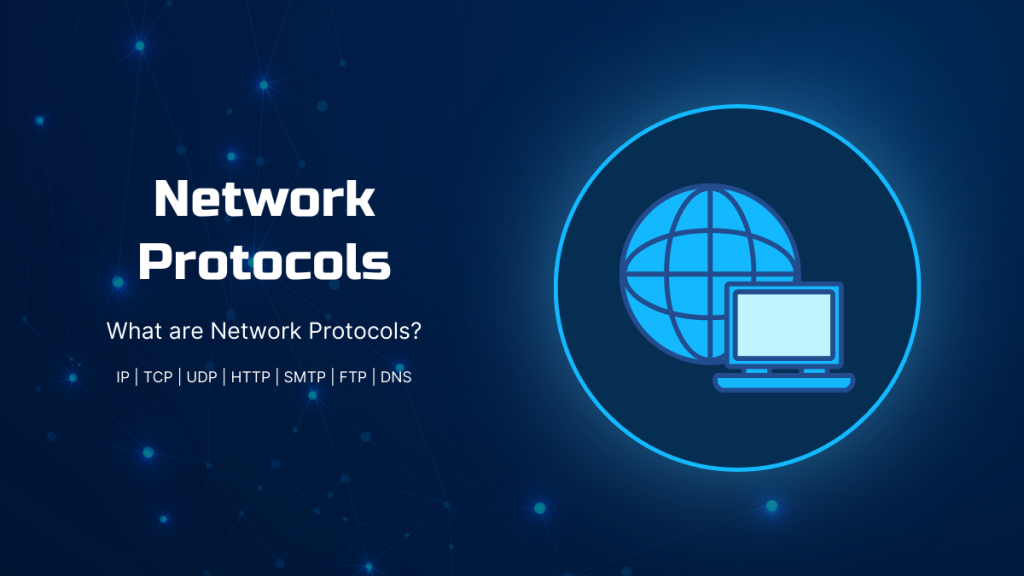Network protocols are collections of rules and conventions that govern how data is sent and received across a network. These protocols allow networked devices to interact successfully. The following are some of the most fundamental and extensively used network protocols, along with brief descriptions for each. Each of these protocols is critical to the operation of networks and the Internet, allowing for various types of data transfer and communication. In order to better understand the roles and uses of different network protocols.
Internet Protocol (IP)
IP is a primary network protocol used for sending data packets from one device to another on the Internet. Each device is assigned an IP address, which helps in directing the packets to the correct destination.
- Example: When you visit a website, your computer uses IP to send requests to and receive data from the server where the website is hosted. Each packet of data sent or received includes the IP address of the source and destination.
